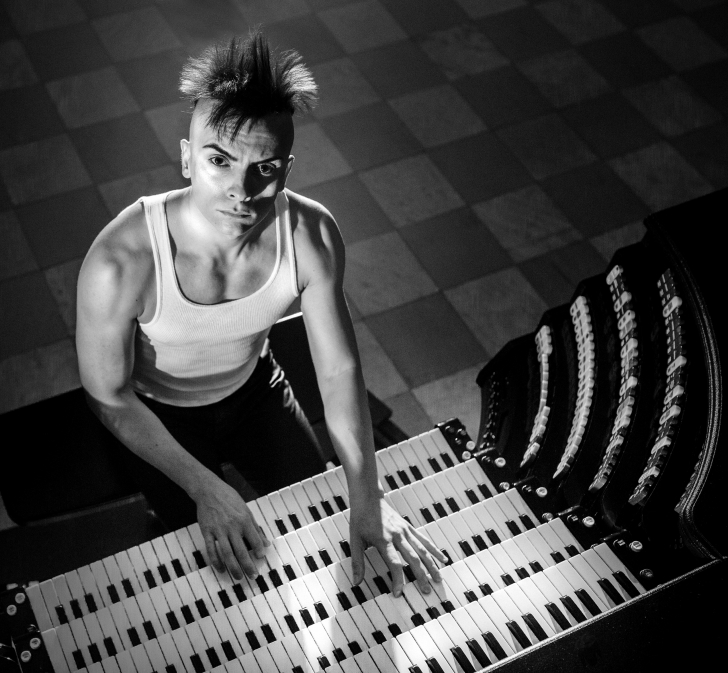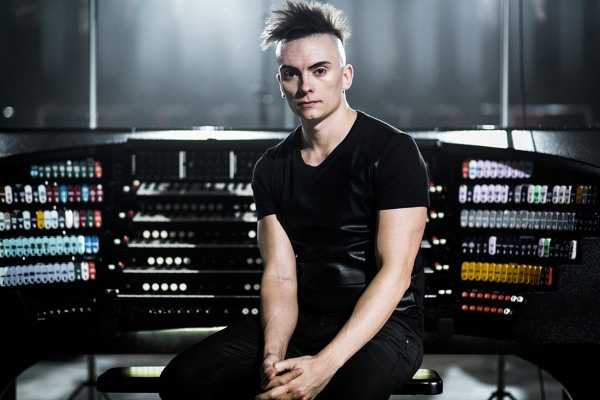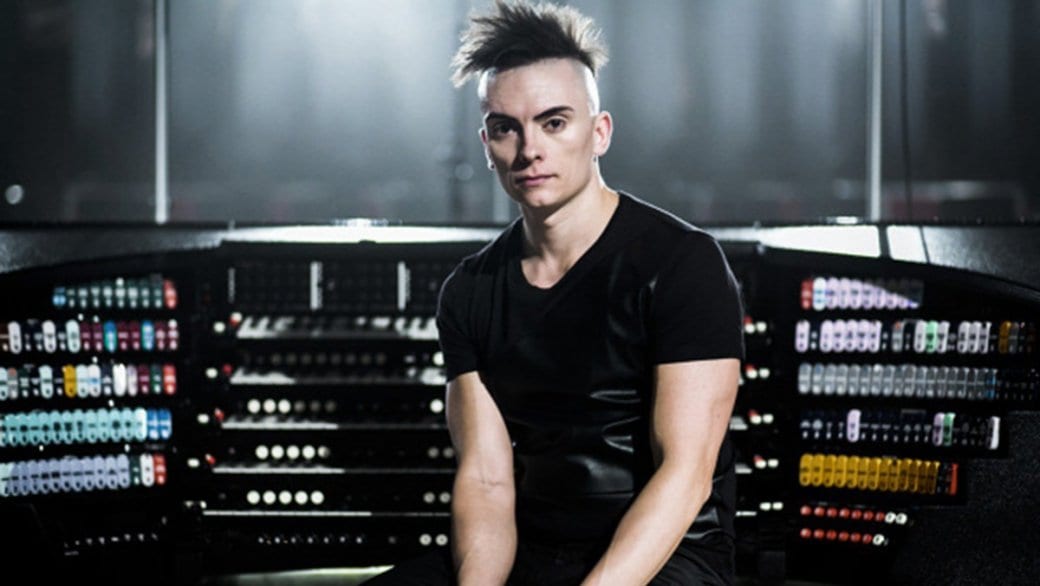American organist Cameron Carpenter is a charismatic musical genius and provocateur who hates labels, is fiercely bisexual and proud of revolutionizing the organ world – which he insists he really isn’t a part of.
A four-year-old keyboard prodigy in a non-musical family, Carpenter trained at the American Boychoir School at age 11 before attending the University North Carolina School of the Arts when he was just 14. Two Juilliard degrees later, Carpenter would go on to revolutionize classical music in 2014 with his cross-genre digital international touring organ built by Marshall & Ogletree.
Unchained from playing in organ recital halls, Carpenter has performed on many of the world’s great stages. The journey established the Grammy-nominated Carpenter as a virtuoso composer-performer. While his concert setlist remains important, audiences — and his legions of LGBT fans — now come to see Carpenter the consummate showman. Daily Xtra speaks with Carpenter on the eve of the Canadian leg of his current world tour.

Daily Xtra: Do you identify as bisexual?
Cameron Carpenter: Bisexual is a better word (to describe me) than gay. In a tongue-in-cheek way I just like to say I’m gay and bisexual, because it’s all true. When I’m gay, I’m gay, just like in the general sense I’m not. It is possible to hold conflicting or co-acting views and desires. I’m very much aware of being attracted to women when I am involved with men. My sexuality involves all genders.
How important is sexuality to your identity?
It is one and the same. My sexual orientation basically is my identity. I think we’ve finally gotten to a place where we can work around things. It no longer is about being gay or straight. There are a lot of people who associate the word gay with their lives, so there is some knee-jerk reaction when people hear me say that I am not gay. For me it is simply a matter of accuracy and respect for those who believe gay to be exclusive homosexuality, which would be inaccurate in my case.
Is the classical music world conservative?
It is a conservative place innately because the concept of classical music has always been — well, at least in the last 80 years — indivisible from the concept of a text, a point of origin that’s the score. That’s fine, except what immediately kind of creeps in there is orthodoxy. This is the case in the interpretation of religious texts. (But) there are many applicable points of view. When I play — as I am on this tour — my transcription of the overture of a Wagnerian opera, I am responding to a text in a rather creative way, recreating and responding to this monumental thing of music without damaging it. In the world of the organ, that’s a big deal.
You are no fan of organized religion.
It is the primary enemy of human progress, particularly insidious in the organ world, though not all organists are religious.
How do you navigate a musical field where people don’t necessarily share your views on religion or sexuality?
I don’t navigate it. I’m not really part of the organ world. Ever since I signed with Sony Classical and came under professional management in Asia, America and Europe, I have made it my absolutely undisguised ambition to not have to work within the organ world. Working within the organ world versus the broader musical world makes no business sense whatsoever.
You revolutionized the organ world with your digital international touring organ.
I don’t know that I have revolutionized my musical field. I have revolutionized my musical life and I suppose the listening experience of those who come to hear me. It is my impression that — with some very wonderful exceptions — the organ community in general is one of Luddites, in some cases I’m sorry to say, the most irascible backward-looking kind. You’d think that a community of people who are some of the hardest-working, most poorly-paid musicians, whose musical opportunities are some of the most severely curtailed, would be looking at the end of this era — the decline of the organ and the church — you’d think they’d have reason to look elsewhere . . . It is those infrastructural limitations that make it impossible for a normal organist to have a career as a pianist would. I am trying to change that.

You enjoy fashion.
I think we have arrived at a place where we understand that style is substance. I do not see a division in those things. I present myself in the most honest way I possibly can, and that means a contemporary and elegant presentation.
Do you notice your queer fans when you travel the world?
I do, I have to say. I have a theory: I think it is because the organ, the history of it falls within the canon of camp. I’m flattered that anyone would think I have a following of any kind. I’m fortunate that I don’t have to work for some church.
(Cameron Carpenter Live
Tuesday, March 29, 2016
Place des Arts, Theatre Maisonneuve, 175 Rue Ste-Catherine O, Montreal
Wednesday, March 30, 2016
First Ontario Place, Partridge Hall, Saint Catharines, Ontario
Friday, Apr 1, 2016
Royal Conservatory of Music, 273 Bloor St W, Toronto
Sunday, Apr 3, 2016
Queen’s University, Isabel Bader Theatre, 360 King St W, Kingston
Monday, Apr 4, 2016
National Arts Centre, 53 Elgin St, Ottawa
www.cameroncarpenter.com
(Photographs by Thomas Grube & Sony Classical)


 Why you can trust Xtra
Why you can trust Xtra


